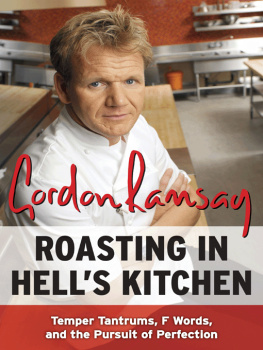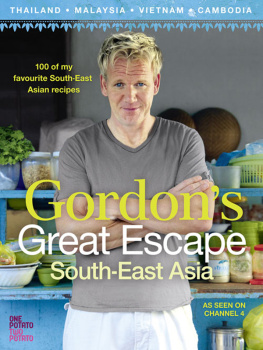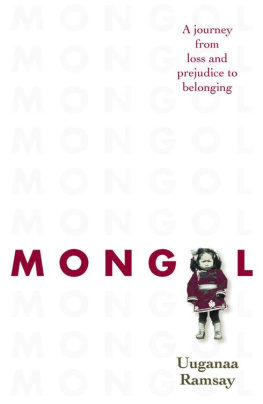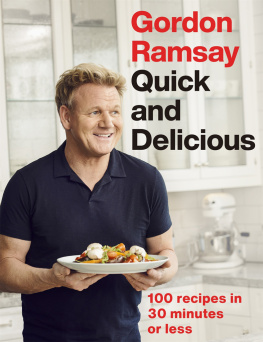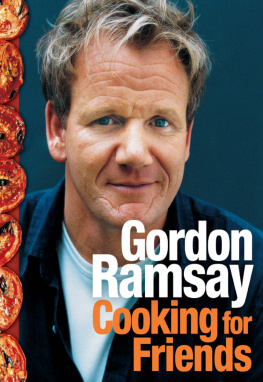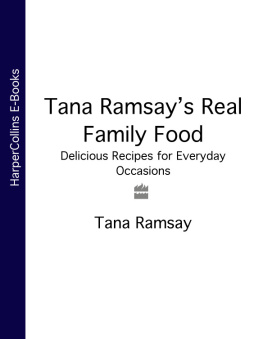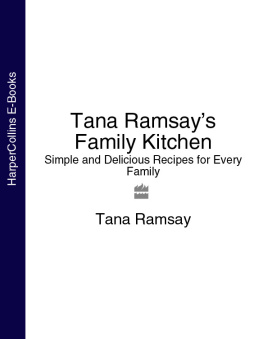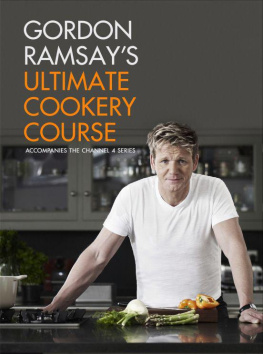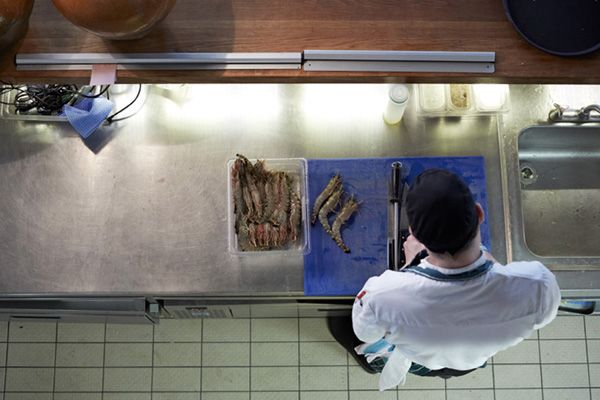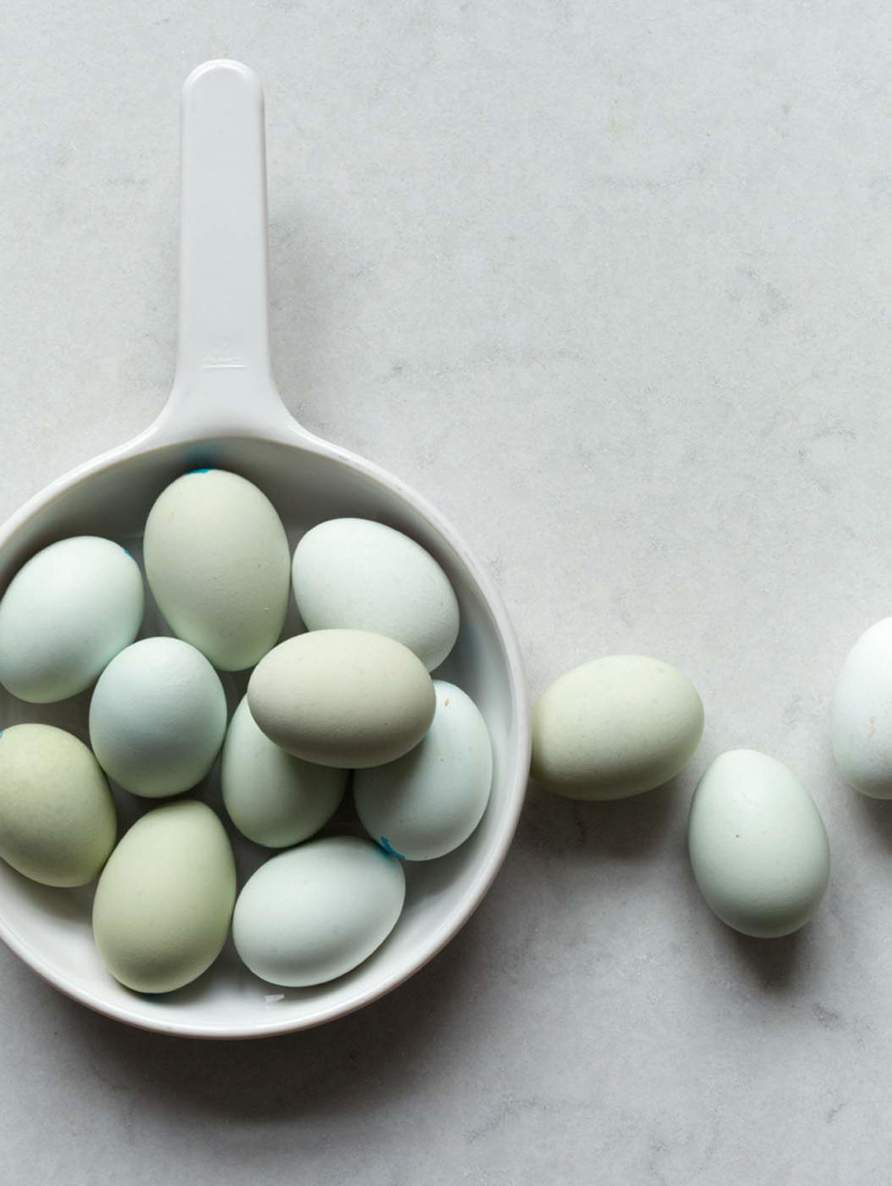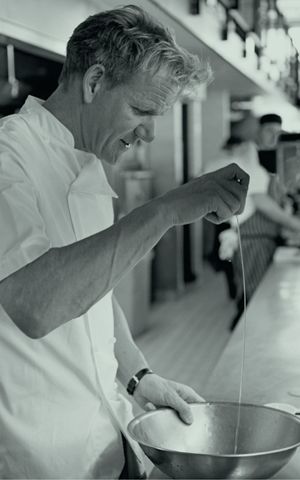GORDON
RAMSAYS
ULTIMATE
HOME
COOKING

www.hodder.co.uk
First published in Great Britain in 2013
by Hodder & Stoughton
An Hachette UK company 1
Text copyright Gordon Ramsay 2013
Programme, Programme Material and Format
copyright One Potato Two Potato Limited 2013
Photography copyright Con Poulos 2013
The right of Gordon Ramsay to be identified as the
Author of the Work has been asserted by him in
accordance with the Copyright, Designs and Patents Act 1988.
All rights reserved. No part of this publication may be
reproduced, stored in a retrieval system, or transmitted, in
Any form or by any means without the prior written
permission of the publisher, nor be otherwise circulated in
any form of binding or cover other than that in which it is
published and without a similar condition being imposed on
the subsequent purchaser.
ISBN 978 1 444 78079 6
Typeset in Bembo and Futura Design by James Edgar at Post98design.co.uk
Hodder & Stoughton Ltd
338 Euston Road
London NW1 3BH
www.hodder.co.uk
CONTENTS
INTRODUCTION
EVERYTHING I KNOW ABOUT COOKING IVE LEARNT THROUGH HARD WORK, DRIVE AND PASSION.
From the age of 17 I made food my life, and its fair to say that since then food has been the making of me. But the sort of cooking I made my name with intricate dishes made with the worlds finest ingredients is a million miles from the food I cook at home. When Im with friends and family I want things to be much more relaxed. I still want to use great ingredients, and to get the most from them, but my cooking becomes more rustic and easy-going.
Thats not to say Im not still using the techniques I apply in professional kitchens. The skills I learnt under some of the worlds finest chefs, from Albert Roux to Guy Savoy, will stay with me for the rest of my life and Id no more abandon them than I would open a greasy spoon. When you are a professional chef you apply all your knowledge instinctively its just that you have to apply it differently, because cooking at home throws up a different set of challenges. Hopefully your diners, be they friends or family, wont be expecting Michelin-quality cooking (if they are, theyll be sorely disappointed round at mine), but they can still be among the most demanding people to cook for, never afraid to tell you what they think.
So what do they and you want from home cooking? Thats the first question to ask, and I think my answer is probably the same as it is in every house. With a busy family theres me and Tana and our four children, Megan, Jack, Holly and Tilly I want to be able to provide healthy food throughout the day, from breakfast to dinner, as quickly and efficiently as possible. I want it to be the kind of food that gets everyone excited, so there needs to be lots of variety. I want it to pack a punch, so I love big bold flavours. Above all, I want it to be the sort of food that will draw the whole family together. It really depresses me how many families dont eat as a unit any more, because, for me, sitting around a table sharing food and conversation is the biggest pleasure in life and a family that doesnt have that is all the poorer. But enough of the theory. Lets get on to the practice. How do you achieve all this? Ive divided this book into chapters to see you through the whole day, from weekday breakfasts through to Saturday night dinners, and hopefully you will find plenty of recipes that will become family favourites. But before we get on to those, let me share some general tips to make cooking a pleasure.
BE ORGANISED. After a lifetime in kitchens, this, I realise, is the golden rule. Nine times out of ten, if something goes wrong, its your preparation that was at fault. Get your ingredients out, prep the vegetables, have all your pans ready and in easy reach. Not only will it make your cooking more efficient, it will also make it far less stressful. I might add that it also makes it easier to tidy up as you go along, another great skill that professional kitchens have taught me.
BE ADVENTUROUS. Great home cooking is built around the classics, but cooking the same old dishes can soon become a chore. The secret is to not let them go stale. Make sure you keep your cooking exciting by tweaking and adapting it. Over the past 20 years Ive really noticed a big change in peoples attitudes to what they will and wont eat. People are much more adventurous these days. They love trying new flavours, new ingredients and new cooking techniques, so take inspiration from around the world. Try your hand at Asian noodles or Mexican tacos, make some spicy Middle Eastern meatballs. Even a classic like roast beef and Yorkshire pudding can be given the occasional makeover. It will make a great change for you and your family and give you all renewed enthusiasm.
BE BOLD. One thing cooking has to do is to stand up and be noticed. It doesnt matter if a dish is light and delicate or full-on and gutsy, the flavours should be distinct and clear. You dont want wishy-washy. And that means getting the maximum from your ingredients. The two things I notice home cooks dont use confidently enough are heat and seasoning. Get your pans properly hot before adding your ingredients and dont be afraid to get a good colour on meat and sometimes vegetables, as this will translate into extra flavour. Similarly, season well and early on to bring out the flavour of your ingredients, tasting as you go along.
BE REALISTIC. A little ambition is a good thing, but its always good to know your limits. Not so much in the complexity of what you make theres nothing in this book that will be beyond a reasonable cook but in terms of your menu choice. This is mainly down to good planning. Dont make a meal that requires four dishes to be stir-fried at the last minute, or try making a frozen pudding after you get back from work for dinner that evening. Remember also that practice makes perfect.
BE RELAXED. If you worry that something will go wrong, it probably will, so try not to stress yourself out. Remember, recipes are only there as a guideline and most of the time a little bit too much of this or too little of that is not going to cause a catastrophe. Get the children or your guests involved. Have them chop or stir or lay the table and make the whole process a more social occasion. That way youll all have a good time and if something does go wrong, youll have someone else to blame!
But above all, have fun. Happy cooking!
CHEFS HAVE A DIFFICULT RELATIONSHIP WITH BREAKFAST.
Next page


